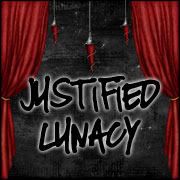So, yesterday we looked at beginnings that have been overdone and are probably not the best way to capture the readers attention, but what makes a good beginning?
I wish there was some easy way to answer this. Every writer always searches for the perfect way to start a story. They search for that one perfect line that will dangle the bait in front of the reader's eyes just waiting for the chance to hook them and reel them into the rest of the story. I could just make a list of what makes good openings, but the truth is that the best openings are unique to each novel.
Instead, I'm going to pick several great openings (hey, they've been voted upon) and analyse what makes them so great. And, just because I'm mean, I'm not going to tell you where the quotes come from. So, here's a challenge, can you guess where these openers come from?
- Call me Ishmael.
What is it about this line that everyone loves? It's simple, plain and introduces the reader to the character straight away. The conversational way it is written just invites the reader to snuggle in to a nice and cosy chair and follow Ishmael on his journey.
- It was a bright cold day in April, and the clocks were striking thirteen.
At the first glance, doesn't this just look like it's breaking a big NoNo. It starts by addressing what the day looks like, but then the reader is drawn in by the unusual. Since when do clocks strike 13?
- In my younger and more vulnerable years my father gave me some advice that I've been turning over in my mind ever since.
This sentence introduces the character first up. It is not trying to do anything fancy, just letting the character letting the character mull over what advice he was given. Through the use of "younger" and "vulnerable" it's suggesting that the character has made some developments before the story has even started, now the reader wants to know about the character and follow them on this journey.
- We went to the moon to have fun, but the moon turned out to completely suck.
This is a fun little sentence, which also draws the readers attention. It is taking something unusual that the reader can only hope to imagine, after all, we can't really go to the moon now, can we?
- Mr. and Mrs. Dursley, of number four, Privet Drive, were proud to say that they were perfectly normal, thank you very much. They were the last people you'd expect to be involved in anything strange or mysterious, because they just didn't hold with such nonsense.
This sentence introduces some of the characters of the novel. It also introduces the normal world. It also hints that something has happened to alter this normal world and you want to find out what "strange" or "mysterious" thing has happened.
- Far out in the uncharted backwaters of the unfashionable end of the western spiral of the Galaxy lies a small unregarded yellow sun.
This sentence introduces the setting. It's also introducing the unusual.
- When Mr Bilbo Baggins of Bag End announced that he would shortly be celebrating his eleventyifirst birthday with a party of special magnificence, there was much talk and excitement in Hobbiton.This passage introduces the character. It also has a fun voice and introduces the language.
- The man in black fled across the desert, and the gunslinger followed.Short and sweet. It introduces a couple of characters. By not giving too much description or names of the characters, it creates an aura of mystery. Who are these characters? The reader has to read on to find out.
- When I wake up, the other side of the bed is cold. My fingers stretch out, seeking Prim’s warmth but finding only the rough canvas cover of the mattress. She must have had bad dreams and climbed in with our mother. Of course she did. This is the day of the reaping.
This passage introduces the character (also another that could be said is bad by having the character waking up, but it works). It introduces her word, and the reader wants to find out what's special about this day. What is the reaping?
- My mother used to tell me about the ocean. She said there was a place where there was nothing but water as far as you could see and that it was always moving, rushing toward you and then away. She once showed me a picture that she said was my great-great-great-grandmother standing in the ocean as a child. It has been years since, and the picture was lost to fire long ago, but I remember it, faded and worn. A little girl surrounded by nothingness.
This introduces the character as well as eluding to the conditions as to which the character is living. This is done by saying that the character only knows of such a normal setting as the ocean. Every reader should know what an ocean is, so the writer is grabbing the reader's attention while doing some good world building.
So, by looking at the ten passages above can you see some pattern forming as to what makes up great first sentences? It starts with a "C" and ends with a "haracter". That's right. Most of the above start with a character. If you take pages to introduce the character then the reader has no one with which to identify with.
Another element that could add interest to the first sentence is through the hint of the unusual. I was more drawn to the sentences that gave some clue that not everything was as it should be. There was something different with the world that is being created, or there was a hint that something was about to happen.
How did you go with picking where the first lines comes from? Can you think of any other good examples? Or, do you disagree with some of these on the list?

























9 comments:
It starts with "C" and ends with "haracter."
Brilliant.
Great post! :D
Thanks for this post. I had to learn this the hard way. So many great books began so many different ways, it's hard to pin down what a good beginning really is.
These are some great first lines. I also think it evokes something powerful for the reader. Character yes, but if we as the reader can make an emotional connection immediately, then we're hooked to read more.
Great post and blog!
I completely agree with all of these beginnings. I try to actually start with dialogue to reveal a character in the first line. Not sure if that's the way to do it, but hopefully it'll work!
Excellent post, Cheree! I agree with Elana. We need a balance and some form of emotional hook. :-)
At one point when I was trying to work on those first lines I grabbed a ton of books and just read the first lines. What I learned (the hard way by going crazy a zillion times over lol) every first line is unique and the author makes it work by pulling you in with action and a great character.
Oooo Oooo Me Me! Pick Me! #4 is Harry Potter of course, one of my favorite books and movies!!! Great beginnings and I love that you gave us an idea of what made a gripping beginning. I'm diving into my revisions so this is perfect!
I agree that it all comes down to character. Great choices, great post. Thanks for following me, I'm here following you now. :)
Great examples! Building character and voice as quickly as possible is critical.
Post a Comment